Its sprawling 30-acre head office site in Belfast’s Boucher Road has been both instigator and test-bed for many of the processes, procedures and cultural fundamentals that now imbue Lookers, including the ‘customers for life’ philosophy.
Since it was acquired by Lookers in 1996, Charles Hurst has also been the proving ground for a succession of managers who would head the overall group: Fred Maguire, Ken Surgenor (now Charles Hurst chairman) and current chief executive Andy Bruce among them.
Lookers has changed chief executive twice and made a string of acquisitions since AM last visited Charles Hurst.
Charles Hurst has a long track record of making money. The business, sometimes dubbed ‘the Arnold Clark of Northern Ireland’ due to its market dominance, consistently delivers return-on-sales figures of more than 2%.
Its sprawling 30-acre head office site in Belfast’s Boucher Road has been both instigator and test-bed for many of the processes, procedures and cultural fundamentals that now imbue Lookers, including the ‘customers for life’ philosophy.
Since it was acquired by Lookers in 1996, Charles Hurst has also been the proving ground for a succession of managers who would head the overall group: Fred Maguire, Ken Surgenor (now Charles Hurst chairman) and current chief executive Andy Bruce among them.
Surging Lookers less reliant on Northern Irish and Scottish arms
Lookers has changed chief executive twice and made a string of acquisitions since AM last visited Charles Hurst.
Now the PLC relies less on its Northern Irish and Scottish businesses.
As our charts show, Lookers’ sales and profits overall have risen at a much greater rate than its Charles Hurst business alone – in 2015, the proportion of Lookers’ pre-tax earnings brought in by Hurst fell below 10% for the first time in four years.
Lookers’ rapid rise in the past few years has been through takeovers of AM100 dealer groups: Benfield, Knights, Drayton Group and Colborne Garages in England, and Lomond Motors in Scotland. Doing so has either expanded upon, or introduced, franchised partnerships with Audi, BMW and Mini, Jaguar Land Rover, Mercedes-Benz and Volkswagen. All are growth brands.
While the acquisitions have grown its headline financials and provided scale, Lookers has actually slipped down the tables in the AM100 Update on page 24 for profit before tax per outlet (in 16th place with £448,366 this year, down from 10th and £510,656 last year) and its return on capital employed has declined from 23.5% to 21.2%.
Andy Bruce recently told the London Stock Exchange: “Our strategy is to have the right brands, the right locations and excellent execution. By implementing this, we are ideally placed to take advantage of growth prospects across all areas of the business as well as consolidation opportunities in the sector, not least because businesses of scale will be the winners in our sector.”
Bruce was group operations director in charge of the Charles Hurst business the last time AM visited, in 2007. Back then, turnover was £230 million – 15% of Lookers’ total – while the 700 employees sold about 9,000 new cars and 7,500 used cars.
The Boucher Road site alone accommodated 14 car franchises, a Yamaha motorcycle outlet, a parts distribution centre and a used car operation.
We said in our 2007 profile that if Hurst, as it is known internally, sneezed, Lookers reached for the Lemsip.
A string of acquisitions since then, most notably Colborne Garages in 2014, Benfield in 2015 and Knights and Drayton Group this year, have certainly diluted Hurst’s status within the wider group.
Nevertheless, it remains a vital contributor, both in revenue and in the generation of new ideas, people and processes. Projected turnover for 2016 is £425 million, 10% of Lookers’ total and up 8% year-on-year. About 60% of that (£260m) comes from the Boucher Road site; the rest from five other franchised sites, plus a smattering of tyre centres, an accident repair centre and a used car facility in Dublin.
Hurst will sell 12,000 new cars in 2016, of which 85% are retail, and 15,000 used – the fastest-growing part of the business. It accounts for 21% of all new cars sold in Northern Ireland, up from 13% in 2007 (the market has contracted following the recession, from 68,000 to 58,000, as Hurst continued to grow).
The purchase of 10 acres adjacent to Boucher Road increased its size by 50% and it now employs 900 staff at 20 franchises, including three motorcycle (BMW, Honda and Yamaha). The site is so big it has its own road signs, its own maintenance team and a road sweeper that cleans twice a week.
Profit-wise, Hurst contributes a slightly larger proportion of the motor division total relative to its turnover, according to the internal accounts. Bruce, who visits the business every few months, said that comes down to the company’s “inherent efficiencies”.
He explained: “We have an ability to centralise everything – it’s a classic market area, hub-and-spoke business where the other Hurst sites are proper retail spokes. In the mainland, spokes are becoming hubs. Also, our ability to manage the detail because of the geographic compactness can’t be underestimated.”
Bruce described his time at Charles Hurst as his “favourite job – I knew every single figure in the business, which meant I was able to do the day job better”.
The strength and awareness of the brand name in the local community is also a factor – the closest comparison is Arnold Clark in Scotland – which has benefits when advertising on TV or radio and also when recruiting staff.
Not that those staff come fully formed: Hurst has been forced to ‘grow its own’ as its talent pool is smaller. However, Northern Ireland also doesn’t have the same level of movement of staff between dealerships, which means investment in people pays off.
Many of the company’s senior managers started in junior roles.
“We don’t have to explain the culture to them [Charles Hurst managers]; they are the culture” Andy Bruce, chief executive, Lookers
“We don’t have to explain the culture to them; they are the culture,” said Bruce.
His template is John Lewis: dependable and slightly upmarket, but with an appeal to a wider market. Does he believe this aspiration has been achieved?
“We’ve always been part of the community and dependable but we have become more sophisticated over time.”
The evidence is in the numbers: a doubling of turnover and used car sales since 2007 suggests it is a business that understands how to win and retain customers.
Apart from the high-premium showrooms, such as Ferrari and Bentley, all dealerships sell new and nearly new cars only. Used cars are sold via the Used Direct business.
Surgenor explained the rationale: “Used car buyers do not want to walk around all the franchised sites to find the car they want. So they can just go to Used Direct and they are all there. It also means that the staff can be totally focused on selling new and nearly new.”
Group operations director Colin McNab, who has been with the business for 35 years, is credited with putting greater emphasis on used car sales.
This includes creating two spin-off brands, ‘First Time Buyers’, where every car costs less than £6,000, and ‘Premium Direct’, for the likes of BMW, Mercedes-Benz and Audi.
McNab said: “We have opened the window wide and moved up and down the food chain. It’s about offering choice and value and being more proactive. We have a buying team that focuses on our buyer profile and sources appropriate stock that suits that profile.”
First Time Buyers is selling about 900 cars a year from a stock of 60, with an average value of £4,000. Return on investment is close to 300%, said Bruce.
The process is rigorously managed, according to McNab. “Margins are strong by virtue of the value of the car. Key is the price point, which is market-driven,” he said. “They [the buying team] have to get it right at the start and they have a disciplined process.
“If over-aged stock [cars more than 90 days old] is more than 5% of total stock, then they are not allowed to buy any more stock. Once you stop supply, they focus on the problem at hand.”
He also turned the sales process on its head: “Previously, we wanted everything from customers’ address to their inside leg measurement. Now we say ‘if you have £400 deposit and can afford £25 per week, you can afford anything on this site’, and then we leave them alone.
“It changes the way customers are – they get excited about the fact they can afford any car and it puts them at ease.”
This approach is now being introduced to the rest of the group, particularly for test drives. “We don’t hold them to ransom,” said McNab.
Premium Direct is selling 50-60 cars per month. Although the return on stock investment is smaller than First Time Buyers – about 20% – due to the low stock turnover, in terms of profit the two are similar.
Of the additional 7,000 used cars being sold by the business compared with 2007, almost a quarter are via the two new brands.
More recently, Charles Hurst introduced a transparent fixed price policy for used cars to remove the haggling element.
“It came about because people told us they didn’t like haggling, so we took that away – and it’s worked,” said McNab. “We back it up with our price promise to give people confidence to come and buy and know they have got a good deal.”
The initiative was trialled at the First Time Buyers operation as those buyers tend to be the most nervous. The business premise was skinny margins, high turnover, and customers were happy to pay the asking price.
However, when it was rolled out to the Used Direct operation, Lookers ran into some problems – buyers took a different view and wanted to feel a sense of victory in negotiating a lower price.
Consequently, it allows some “wriggle room” at the manager’s discretion, up to a maximum of £100.
McNab recently introduced another brand to the used operation, called ‘Loved By Us’. This refers to any car that Charles Hurst sold and subsequently serviced from new. It has been able to add a premium of £150 to the selling price.
“We know its history and we can say that we know everything about the car. Customers like that and they are willing to pay a little bit more for it,” said McNab. “We are trying to tease out of our stock something different to go to market.”
Expect to see Loved By Us make its way to Britain over the coming months, as long as Lookers can integrate it with its manufacturer partners’ used car brands.
Strolling round the Boucher Road site with McNab (“I walk around four miles a day!” he said), it becomes clear why he is so highly valued by the business: the ideas tumble out of him. His latest is to extend the First Time Buyer concept into the First Time Driver, although this is no more than an aspiration at present.
“Their first car is often what they learned to drive in,” he said. “We could either bring a driving school on board to use our cars or bring instructors into the business. It’s an opportunity to capture the buyer when they are learning – it’s customers for life in action.”
Swathes of the Charles Hurst business have changed significantly since 2007, but one that has remained the same is how the business is divided between the twin elements of shared resources and autonomous management.
Every franchise is run as an individual profit centre, with managers given complete sovereignty to make decisions. But all back-office functions are shared, including marketing, administration, accounts, IT, switchboard and warranty.
Bruce described it as a “best of both worlds” approach, which also defines the wider Lookers business. “We have franchise-responsible businesses within a business that have a singular focus on that brand, but they can tap into the buying power of a big business. That philosophy started here [at Hurst],” he said.
So if ever there were a dealer group pushing for the right to multi-franchise, it would be Lookers, right? Um, no – Bruce is dead against it.
“We don’t believe in multi-franchising in one facility; we believe in brand specialism and autonomy otherwise you have compromises such as a lack of focus because people will gravitate to the easiest thing to sell,” he said. “I can see the theoretical benefits, but the execution is very difficult. It’s a unique situation [at Hurst]; it can’t be replicated.”
This belief extends to the workshops – most of the dealerships have their own. Again, the reason is a perceived risk that staff would focus on the busiest brands.
“We have around 140 bays across the site, but would we build a 140-bay workshop if we started with a blank sheet of paper? Probably not,” said Bruce.
Its expanded site has enabled Charles Hurst to extend its interests into cosmetic repairs (see panel, above) and a
dedicated new and used van centre, which also has a thriving rental service – an ideal way to generate the used stock the business craves. It has also set up a central valeting facility based on a production line system.
This is part of a £20m investment in the business since 2007, of which about £2m was on land acquisition. However, that total is likely to be dwarfed over the next few years as franchise demands rise.
Take Jaguar Land Rover, for example. The two dealerships will be merged into one new facility next year at a cost of about £7.5m.
Bruce is typically sanguine about the investment, although he recognises it is causing problems for a lot of family-owned businesses.
“Manufacturers want to take more control of how the retail businesses are presented. They want a standardised and unified approach across the country,” he said. “It’s an issue for family businesses who see themselves as entrepreneurs – they aren’t able to be that any more.
“It’s more formatted, but we are a corporate and we will continue to do it as long as it makes financial sense.”
‘We grow our own people’
Charles Hurst’s management development programme and academy have become a breeding ground for new staff and new ideas, according to Andy Bruce.
New employees go through a six-month structured classroom course, during which they are gradually
introduced to the showroom environment with the support of a ‘buddy’. All the time, managers and trainers are giving feedback on performance.
“We have introduced an incentive for the buddy; if the trainee passes after six months, the buddy gets £500,” said Bruce. “It means that we grow our own people.”
It has revolutionised staff retention. Hurst previously lost about 50% of its starters; now it loses just the odd one or two.
The last wave of intakes saw 10 trainees sales staff and six service advisers complete the course.
Hurst has also introduced a more rigorous vetting process for new recruits, putting them through a two-day induction course. Franchise bosses no longer do the interviews; they are undertaken by the trainers to ensure the process is consistent.
“Part of the process is you have to be able to get up and present to a room of people,” said Bruce, “because if you can’t, then you won’t be able to sell a car”.
Meanwhile the management scheme is a 12-month course; no one can be promoted at Hurst without successfully completing the training.
“We don’t just look at customers for life; it’s staff for life as well,” said Bruce.
Cosmetic repairs add £500,000 to bottom line
The success of an insurance product for dent and cosmetic repairs launched a couple of years ago encouraged Charles Hurst to open its own repair facility, Carsmetic, rather than subcontract out a growing volume of profitable work.
“We built in a complete protection plan, including types, bumpers and wheels,” said Andy Bruce. “Customers see value in it, which means the sales staff see value in offering it. A lot of the work is used cars and we have a set price.”
The centre started with one painter; it now employs 24 and recently moved to shift work to extend hours of operation. Turnover is £90,000 a month.
“We use powder paint, which dries quicker so we can offer a while-you-wait service for alloys. With the right processes, we could do it in an hour,” said Bruce. “That would make our service stand out.”
He added: “Margins are good; it is contributing more than £500,000 from a business that started 18 months ago.”
Login to continue reading
Or register with AM-online to keep up to date with the latest UK automotive retail industry news and insight.

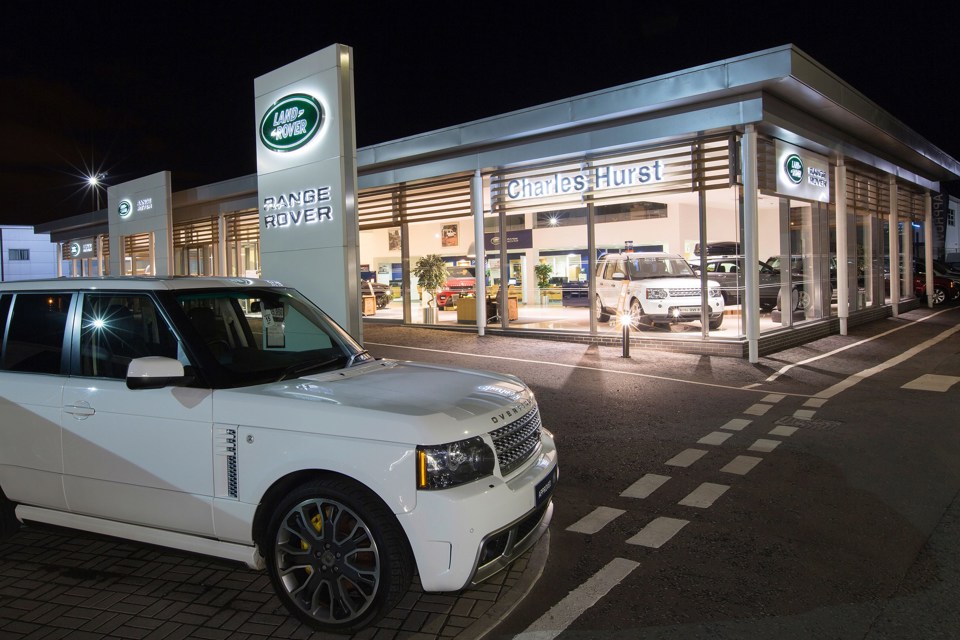
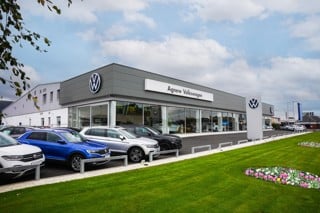
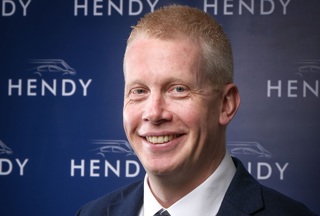
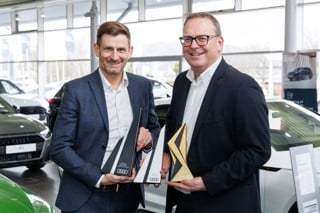
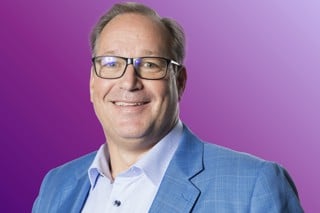
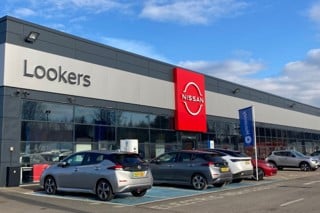











Login to comment
Comments
No comments have been made yet.